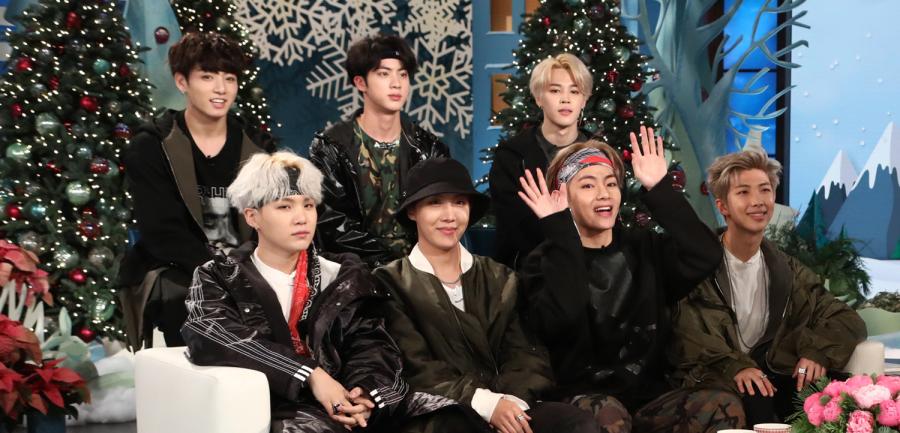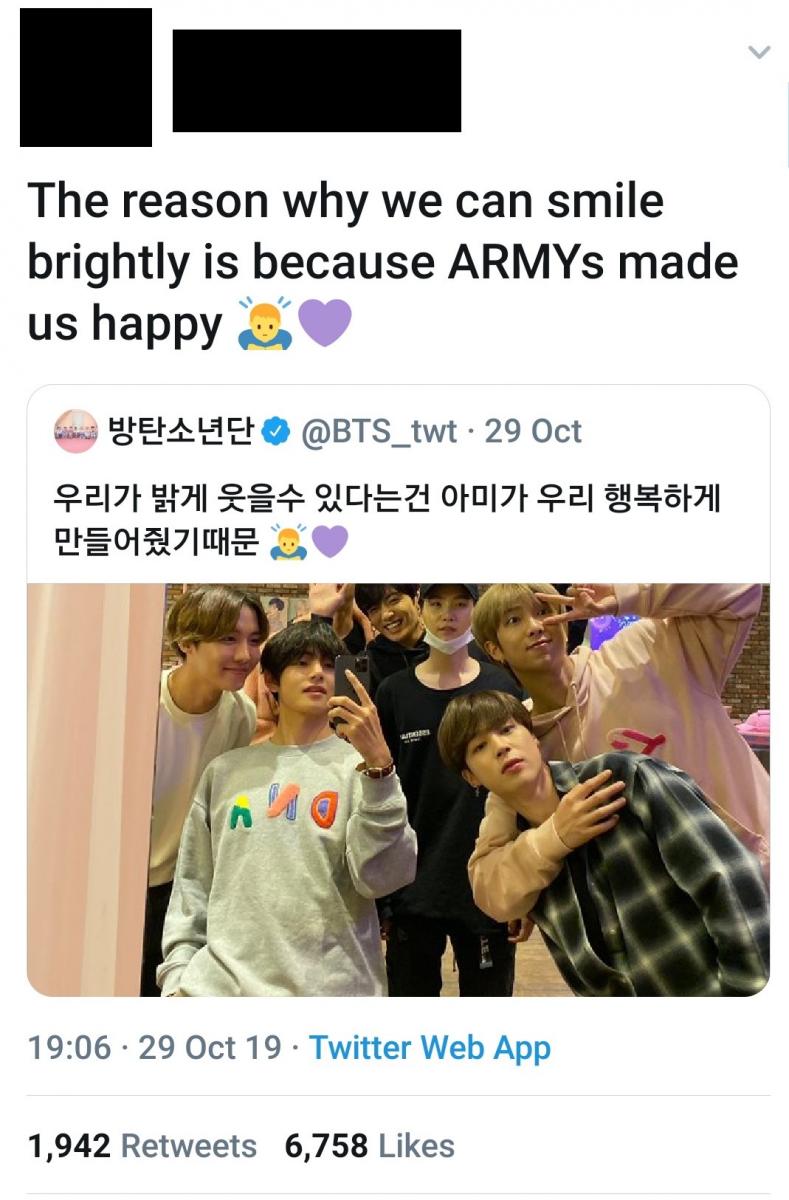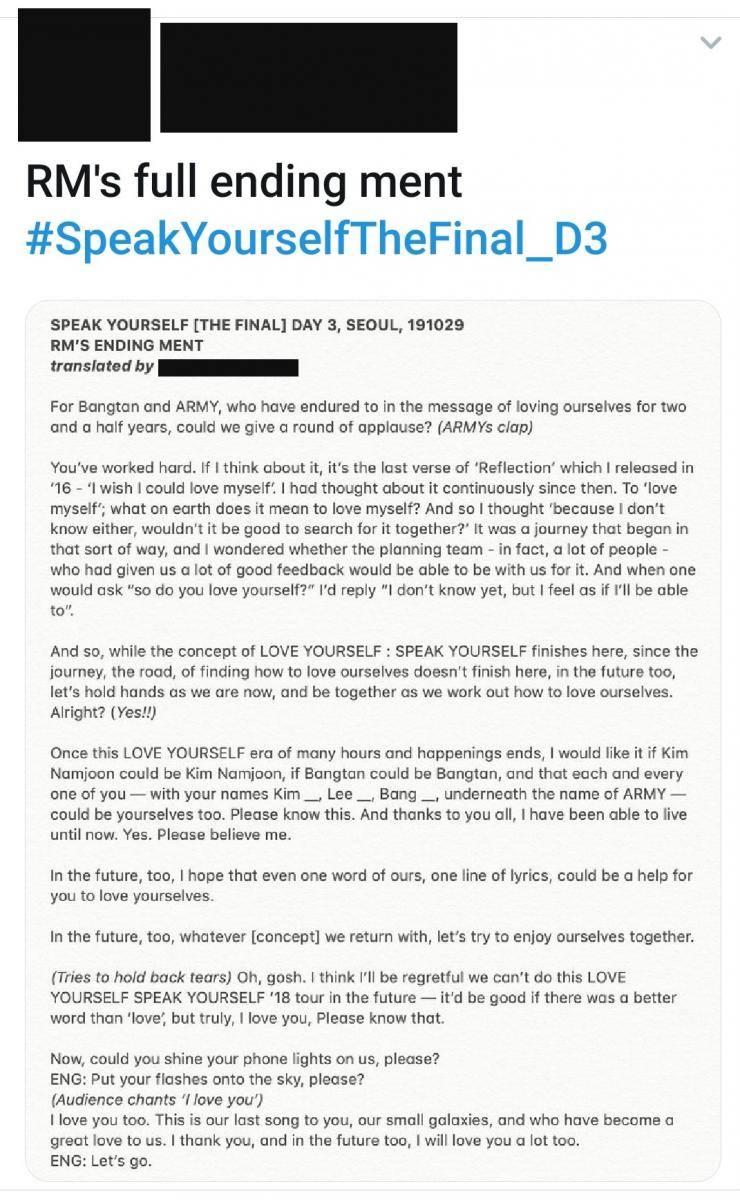
K-Pop as a linguistic phenomenon
The interest in Korean culture has been rising considerably over the last couple of years making the Korean Wave bigger and bigger, and there is no sight of it stopping soon. The Korean Wave does not only spread Korean pop music and Korean drama in the Western world, but also its culture more broadly. It is an unprecedented phenomenon that makes South Korea a major player in the constant process of globalization, sparking interest for the country all over the world (Tuk, 2012).
This article will focus on whether there is a linguistic influence that fans of K-Pop experience in the Western world and, if so, to what extent. For showing this, I will use myself as a case study.
Korean pop music
K-Pop is an abbreviation for Korean pop, a genre of music that has its origins in South Korea. While having its roots in traditional Korean music, K-Pop is part of popular music that is influenced by music genres from all over the world, such as rock, hip hop, RnB or electronic dance. The genre itself has been emerging since the late 19th century and has been developing ever since. The modern version that is now well-known all over the world had its breakthrough moment in the 1990s and has also developed since then.
The current period of K-Pop is referred to as ‘Hallyu’ or ‘Hallyu 2.0’. ‘The term is made of two root words; han (한/韓) meaning 'Korean', and ryu (류/流) meaning 'flow' or 'wave', and referring to the diffusion of Korean culture’ ('Korean Wave', n.d.); hence the often used English term 'Korean Wave’. ‘The Korean Wave has become an influential global phenomenon since the start of the 21st century, heavily impacting the contemporary cultures, music industry, film industry, television industry, and behavioral aspects of various people throughout the world’ ('Korean Wave', n.d.).
K-Pop shows that not everything related to globalization is about homogenization or Americanization.
When atempting to connect the phenomenon of K-Pop to globalization, it has to be noted that, according to Appadurai (1996), despite the fact that globalization is often seen as homogenization and Americanisation, our 'new global cultural economy has to be seen as a complex, overlapping, disjunctive order that cannot any longer be understood in terms of existing center-periphery models'. Indeed, K-Pop shows that not everything related to globalization is about homogenization or Americanization, and that lots of new societies and cultures have the potential to become indigenized in various metropoles.
Furthermore, the Korean Wave illustrates how South Korean culture has started becoming a transnational, global phenomenon. It creates new dynamics and patterns, affecting culture on a global and a local level (Appadurai, 1996). It also shows the development of global commodification as a consequence of international interests in the Korean entertainment industry as it has considerable potential for financial profit.
Breakthrough in the Western world
In this century, K-Pop had its first peak in the Western world in 2012, when solo artist PSY charted number one in Global Charts with his song ‘Gangnam Style’. The song quickly became a hit across the world and so far it has 3.4 Billion clicks on YouTube, making it one of the Top10 most viewed YouTube videos worldwide.
In terms of more recent events, K-Pop boy band BTS has recently emerged as a worldwide phenomenon, crossing boundaries globally since their debut in 2013. The seven-member boy band has broken multiple world records that no other Korean act had before them, such as speaking in front of the United Nations or being the first Korean band to ever perform and sell out a show at the Wembley Stadium in London next to artists like Queen and Michael Jackson.
When talking about the breakthrough of Korean Pop music in the Western world, BTS is often the first group mentioned as they are seemingly seen as the biggest boy band in the world at the moment (Hollingsworth, 2019). They were the first to chart an album as a Korean band in the UK as well as having the highest-charting and selling Korean Album of all time in the American Billboard 200. Appearing on multiple American talk shows like The Ellen Show afterwards (see Fig. 1) made them even more popular all across the US.

Fig. 1 - Boyband BTS on their first appearance on the Ellen Show
Multiple groups followed suit, charting high in the Western world as well as appearing on US national television, integrating the genre of K-Pop into the otherwise Western-dominated music market.
The industry
In general, the music industry in Korea works differently than its counterparts in the Western world. K-Pop is mostly associated with boy and girl groups, and while in the West one can have a breakthrough in the music industry through, for example, talent shows or even YouTube, this is not the case in South Korea.
In Korea, before getting the chance to become an idol, a singer will need to audition for an entertainment agency to train under them as a trainee, where skills like singing, rapping and dancing are cultivated. There is no certain timeframe as to how long someone will stay a trainee; it can go from months to multiple years, meaning that there is no guarantee of someone debuting.
Boy and girl groups are nearly never mixed and there is no limit set for the number of members a group can have. The three biggest K-Pop agencies, also known as ‘The Big Three’ are JYP Entertainment, SM Entertainment and YG Entertainment, who all started doing business during the 1990s. They brought out famous groups like Super Junior, BigBang and Girl’s Generation. Another company that gained a spot among the big three is BigHit Entertainment, the company that signed BTS as a band ('BigHit is Now Part of the Big 3 - Who Did They Beat Out?', 2019).
Linguistic and cultural aspects
As a member of the K-Pop community on (mostly) Twitter, I can reflect on the way that listening to K-Pop did not only give me new music to listen to but also an opportunity to learn about a culture that I knew little to nothing about before. As a European, I would say that, if it not for personal interest, you normally do not know too much about most Asian countries or their culture and language. I realized this after starting to listen to K-Pop and seeing that there is a lot to learn when one becomes a K-Pop fan as our cultures differ vastly in all kinds of aspects.
The K-Pop industry is constructed first and foremost for Korean-speaking audiences, keeping everything surrounding an artist or band in Korean.
Taking a closer look at the language, K-Pop is obviously in Korean, and even though songs normally contain a few English words or even phrases, the lyrics are predominantly Korean. If you look at the Western world, most people speak their home country's language(s) and/or English, the predominant lingua franca, but Korean does not seem to be a common language to learn. Nevertheless, the K-Pop industry is constructed first and foremost for Korean-speaking audiences, keeping everything surrounding an artist or band in Korean. In fact, the 'idols' are not always Korean, but in order to be in a band they need to be able to speak the Korean language. For example, boy band GOT7 consists of seven members, some of whom are also of Thai, Chinese and American origin. This has also resulted in their song 'Lullaby' having not only a Korean version but also a Chinese and an English one. A lot of artists indeed do speak English, but the language they mostly interact with fans in, nationally and globally, is still Korean; this covers interactions not only on social media but also, for example, during concerts, where most artists overseas have a translator to translate what is being said by a member to the country’s official language. Of course, sometimes K-Pop starts resort to speaking Engliush to communicate with fans that do not speak Korean, but Korean remains the primary language used in their career.
Appadurai (1996) argues that an aspect of globalization is the blending of the local with the global. This means that something that is a local phenomenon can become a global one, which renders it transnational. Looking at Korean pop music, one can see that their fans all around the world necessarily connect with Korean language and culture through listening to the music, showing the way these are made transnational. So, how does this influence the fans, if at all?
Translating Korean
To shortly introduce the Korean language in comparison to English, it should first be noted that it differs significantly from English. While English is written in the Latin alphabet, which consists of 26 letters, 5 for representing vowels and 21 for consonants, Korean is based on its own unique alphabet called Hangul. Hangul consists of 24 letters (with 10 standing for vowels and 14 for consonants), which are combined in 2- to 5-character groupings to form words and sentences depending on the number of syllables in a word.
Moreover, not every Roman letter and its equivalent English sound is represented by a letter in Hangul. This issue is complicated due to the languages' different phonology, whereby one Hangul letter might not correspond exactly to one English sound. For example, the Hangul letter ㄹ gets romanized into a /r/ and/or /l/ sound, while its actual sound is something in-between those two, a sound that does not exist in English; in another example, there is no Hangul equivalent to the letters <f> or <z> at all ('Korean (한국어 / 조선말)', n.d.).
Apart from that, Korean sentence word order also differs from English. While in English basic sentences follow the subject-verb-object (SVO) order, Korean sentences adhere to a subject-object-verb (SOV) structure (Korean Language Guide, 2018).
I personally do not speak Korean, meaning that, if I listen to Korean music or look at a social media post in Korean, I would not understand what is being said unless I looked up a translation, which is sometimes quite complicated as automatic translations from Google often aren't very accurate for Korean. This is the case for a lot of fans, people from all over the world following the life of K-Pop artists without being fluent or even speaking one word of Korean. But what I find really interesting is how this situation stops being a problem after becoming part of the K-Pop fan community, and how fans never seem to mind that this language barrier exists.
Fans out there create so-called ‘translation accounts’ on Twitter where they dedicate their free time to translating all the content their favorite artists post.
Blommaert (2014) argues that the language normally used in connection to globalization and its processes is English, and that English nowadays is seemingly omniprsent. It is interesting to see that in this case not English but Korean is the language connected to a globalization phenomenon. K-Pop becoming so popular in the Western world seems to spark a growing interest in the Korean language. This also translates into a growth of the Korean language teaching sector. While the interest in learning other languages like German or Spanish seems to be dwindling (Gordon, 2015), multiple universities report a vast increase in interest for courses on Korean language and culture (Pickles, 2018).
When I mention I like Korean pop music, I often get asked, ‘why do you listen to K-Pop if you don’t understand Korean?’. While the K-Pop fandom has grown over the past couple of years, so did the dedication of fans who are bi- or multilingual, so that not knowing how to speak Korean as a fan is no longer a problem. Fans out there create so-called ‘translation accounts’ on Twitter where they dedicate their free time to translating all the content their favorite artists post. This can range from translating simple social media posts to whole concert speeches to livestream translations. Figure 2 shows a translation of a Tweet by boyband BTS which can be either found quoted on translation accounts or often in the comments below an artist's social media post. Figure 3 shows an entire speech from a BTS concert in Seoul translated by a fan. As the speech was originally given in Korean, it was translated by a translation account in order to be made accessible to English-speaking fans. This form of translation can be seen for any form of content referring to a K-Pop artist and is found not only on Twitter but also, for example, on Youtube and Facebook. These translations are not exclusively Korean-to-English; content gets translated into languages from all over the world. Fans try to help each other as well as the artist by making their products more transnational and enjoyable for as many people as possible.

Fig. 2 - A translated Tweet by Boyband BTS

Fig. 3 - A translation of a speech held at a concert in Seoul, South Korea by BTS member RM
Korean in the K-Pop community
Taking myself as an example, I mentioned before that I indeed do not know how to speak Korean. When I started listening to K-Pop, I was also not able to read Hangul in any way whatsoever; but this has changed over time. Getting in contact with the language so often, I somehow slowly learned how to recognize the characters by myself. I personally would not say I am a fluent reader, or that I even know all the letters, but if one considers that I never made an effort to actively learn Hangul, I find it very striking that I somehow figured Hangul out by myself from just looking at it over a longer period. Furthermore, without learning any vocabulary, I know random words and sentences that I picked up from watching videos of the artists whose music I listen to.
As a matter of fact, I know that this is the case for many non-Korean K-Pop fans out there. While being an active member of the K-Pop community, I met a lot of people that made me realize that the linguistic phenomenon I am experiencing personally is not an isolated incident with me being a special case, but it is something a lot of fans experience. When I watch fans interact online, I often see how Korean gets integrated into English. This integrated bits of Korean can be written in Hangul or in its romanized version. For example, the character ㅋ is often used by fans to express a laughing sound similar to that of Korean speakers., Fans also use ㅠ to express being upset about something (see Fig. 4). These characters often get 'westernized' and instead of the Korean letters the Roman <F> and double <T> are used. Taking into consideration that these letters are not in any way equivalent to their Korean counterparts in terms of the sounds they represent, their usage is mainly based on their similarity in shape.

Fig. 4 - The usage of a Korean expression in connection with the English language on Twitter
In relation to K-Pop fans on Twitter, we can see that the platform is becoming an informal learning environment to learn bits and pieces of the Korean language, which leads to it being mixed into other languages, creating new, more fluid forms of linguistic expression. In fact, Blommaert (2014) notes that research on language learning 'has demonstrated the power of informal learning environments and informal modes of language learning. People pick up small bits of language from any available source, and any such bit can become part of an indexical order that provides some kind of meaning.'
What we see here is the phenomenon of using a language without 'knowing' it in the traditional linguistic sense, and that ‘full competence’ is no longer seen as a requirement for meaningful language usage (Blommaert, 2014). Members of the K-Pop community might only know a few words, sentences or expressions in Korean, but can still make perfectly comprehensible language-mixed tweets with the knowledge they have, which other members of the community will understand.
Conclusion
In conclusion, the K-Pop scene offers to its fans not only music, but also the opportunity to learn and experience a new culture. As is the case with every aspect of globalization, interest in K-Pop and the Korean Wave is not evenly spread in every part of the Western world. Nevertheless, the hypothesis can be made that maybe, through K-Pop, South Korea has found a way to integrate its culture on a global level, which might become even more pronounced in the coming years. Korean Pop music has now become a product of transnational culture, corssing borders and gaining fans all over the world.
References
Appadurai, A. (1996). Modernity at large. London, University of Minnesota Press.
BigHit is Now Part of the Big 3 - Who Did They Beat Out? (2019, March 28). Retrieved 31 October 2019 from https://www.koreaboo.com/news/bighit-now-part-big-3-beat/
Blommaert, J. (2014). Sociolinguistics. In C. Leung & B.V. Street (eds), The Routledge Companion to English Studies (pp. 131-144). London/New York: Routledge.
Gordon, L. (2015, April 1). Korean-language classes are growing in popularity at U.S. colleges. Retrieved 3 November 2019 from https://www.latimes.com/local/education/la-me-korean-language-20150401-story.html
Hollingsworth, J. (2019, June 9). How South Korean group BTS became the world's biggest boy band. Retrieved 3 November 2019 from https://edition.cnn.com/2019/06/01/asia/bts-kpop-us-intl/index.html
Korean (한국어 / 조선말). (n.d.). Retrieved 31 October 2019 from https://www.omniglot.com/writing/korean.htm
Korean Wave. (2019, November 5). Retrieved 30 October 2019 from https://en.wikipedia.org/wiki/Korean_Wave
Korean Language Guide. (2018, March 25). Basic Korean Sentence Structures. Retrieved 6 November 2019 from https://www.koreanlanguageguide.com/basic-korean-sentence-structures/
Pickles, M. (2018, July 11). K-pop drives boom in Korean language lessons. Retrieved 3 November 2019 from https://www.bbc.com/news/business-44770777
Tuk, W. (2012). The Korean Wave: Who are behind the success of Korean popular culture?. Available from http://hdl.handle.net/1887/20142